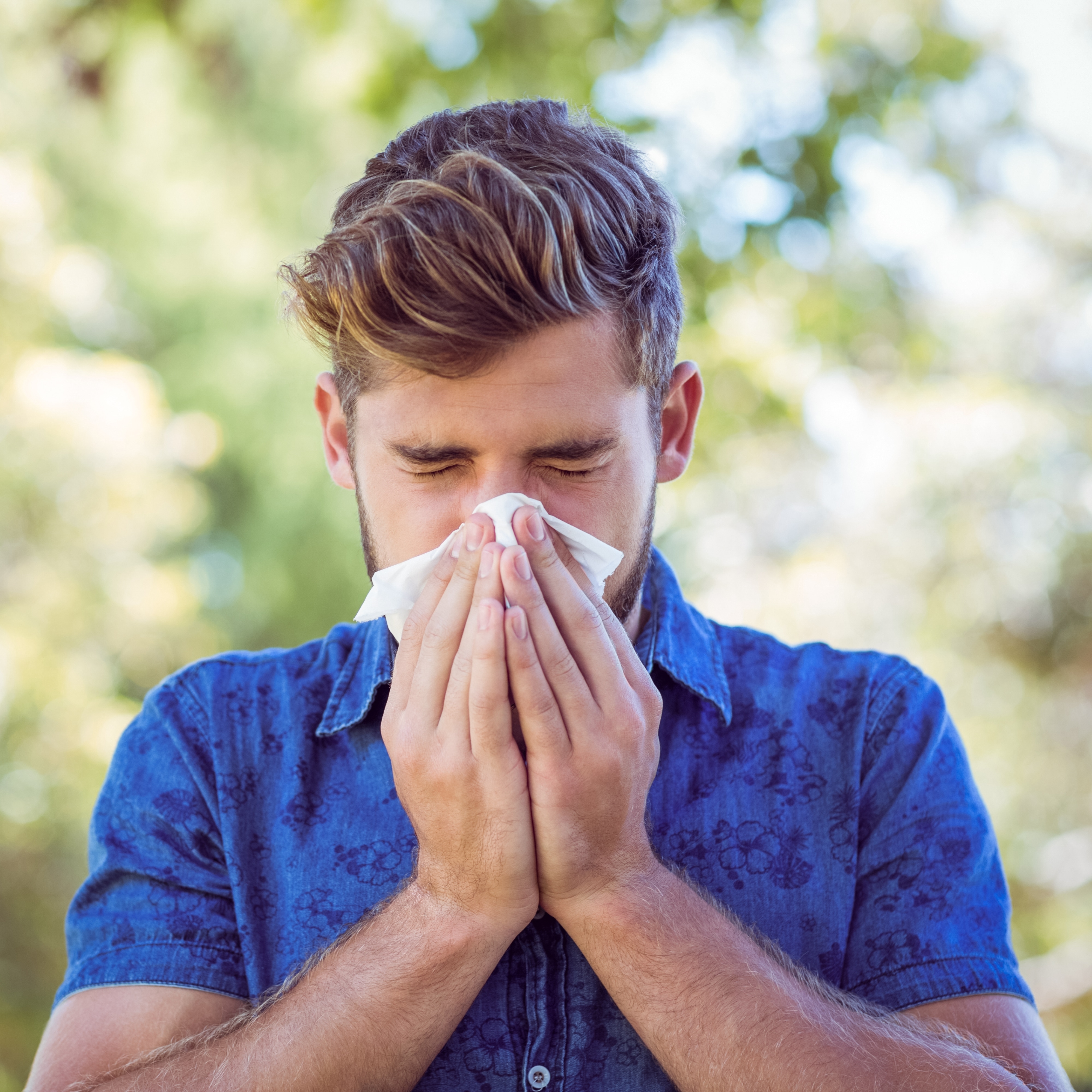Keep Your Allergies in Check This Spring

Spring has arrived, signaling a shift in weather, and the potential activation of your allergies. If you are one of the millions of people who suffer from seasonal allergies, it’s essential to address them promptly. Explore some of these simple tactics to help keep your allergies under control.
Reduce your exposure to the outdoors when pollen counts are high.
Seasonal allergies tend to flare up when there is a lot of pollen in the air outdoors, so limiting your activity outside can help reduce your allergy symptoms. This is an unfortunate piece of advice considering how nice it is to finally enjoy some good weather after a cold winter, but here are some extra tips to staying inside:
- Stay indoors on dry, windy days; the best time to go outside is after a good rain, which helps clear pollen from the air.
- Avoid lawn mowing, weed pulling, and other gardening chores that may stir up allergens. Wear a mask if you decide to do outside chores.
- Refrain from outdoor activity in the early morning when pollen counts are highest.
Keep your indoor living area clean.
To minimize your indoor exposure, here are some tips to maintain clean indoor air:
- Close doors and windows at night if possible or any other time when pollen counts are high.
- Change your air filter in the furnace and AC regularly.
- Remove clothes you’ve worn outside immediately and put them in a hamper and shower to rinse pollen from your hair and skin.
Try over-the-counter remedies.
Relying on over-the-counter antihistamines for relief, until you can see a specialist is okay. There are several types of nonprescription medications that can help ease allergy symptoms:
- Nasal sprays and eye drops are more effective in the long run but can take longer to provide relief than pills.
- If your allergy symptoms are accompanied by coughing, wheezing or shortness of breath, there is a good chance you are also suffering from asthma. In that case, you want to skip the home remedies and go straight to a specialist because your condition could be more serious.
Should your allergies persist despite trying these strategies, or if you’re uncertain whether allergies affect you, consider scheduling an appointment with an allergist to pinpoint your specific triggers and they can develop a more tailored treatment plan for your needs.

Brad McClimon, MD
Allergy, Asthma, & Immunology Department
Medical Associates Clinic
Sources:
https://www.mayoclinic.org
https://usafacts.org